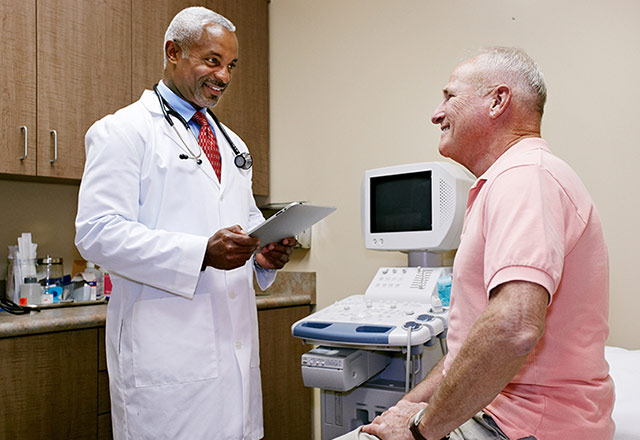Being health cautious and having regular health check ups has often be recommended by medical doctors.'Here are details about five common, presumably small concerns that could have major consequences—with expert advice on how to bring them up with your doctor, without embarrassment.
Urinary Incontinence
 |
| cassanova |
Symptoms: You may “leak” when you sneeze, laugh, lift something heavy or exercise. Or you may have “accidents” because the urge to urinate becomes so overwhelming, so quickly, that you can’t get to a bathroom in time.
Why it’s a big deal: “Urinary incontinence affects your quality of life,” Arbaje says. “You may limit your social life, only go places with a nearby bathroom or just stay at home.” Sometimes urinary incontinence is a sign of a health condition that needs treatment, such as a urinary tract infection, arthritis or a problem with pelvic floor muscles. It can also be a side effect of certain medications. Often, lifestyle changes and the right pelvic-floor exercises will help.
Communicating with your health care provider: Take a deep breath, then tell your doctor about a recent time when you had trouble holding your urine or had to change your underwear. If you’re starting to limit activities in order to be near a bathroom, mention it to the doctor.
Constipation
 |
| istock |
Symptoms: You pass hard, dry stool—usually less than three times a week. You also may strain or even occasionally notice blood in your stool.
Why it’s a big deal: “Constipation can be uncomfortable and even painful,” Arbaje says. It can cause hemorrhoids and other complications, some of which can be very serious, such as confusion in older adults. It may also be a sign that you have irritable bowel syndrome or a problem with intestinal functioning—or a warning sign that your diet needs more fiber and fluids, or that you rely too much on laxatives.
Communicating with your health care provider: Talk about how often you use the bathroom. Ask whether you should be doing or taking anything special to help your bowels move.
Sexual Problems
 |
| peacetest |
Symptoms: You may be experiencing painful intercourse, problem achieving or maintaining an erection, or low sexual desire.
Why it’s a big deal: “Sexual problems can impact your closest relationship and, therefore, the quality of your own life from day to day,” Arbaje says. “You’re never too old to enjoy a satisfying sex life.” Sexual problems may also be a signal that you need to be treated for depression, diabetes, circulation problems or low hormone levels, or that you are taking a medication that’s causing side effects.
Communicating with your health care provider: If you’re a particularly private person, tell your doctor that you have something to discuss as privately as possible. Describe specifically whether the problem is with low desire, pain or erectile problems during sexual relations—or all of these.
Depression
 |
| Dolphin |
Symptoms: You may feel low energy, irritability and a lack of interest in activities you normally enjoy, as well as appetite and sleep problems.
Why it’s a big deal: Depression makes daily living difficult. It also makes taking care of your health—eating a healthy diet, exercising, getting adequate sleep and taking medications as directed—much more challenging. It may also be a warning sign that your stress level is too high, that a medication you take is causing side effects or that you’re grieving the loss of a relative or friend.
Communicating with your health care provider: Explain that you haven’t felt like yourself lately. Describe what you or your loved ones have been noticing about your mood.
Memory Problems
Symptoms: Having trouble remembering names, dates and other facts? Difficulty finding the words you need when speaking or writing? Trouble concentrating or even remembering what it is you need to do next?
Why it’s a big deal: Many people experience more memory slipups as they age, most of which are normal. But lapses that affect your ability to take care of yourself could impact your ability to live independently or to drive a car. Memory changes can also be a warning sign for depression and sleep problems.
Communicating with your health care provider: Describe the kinds of problems that you are having with your thinking and memory. Ask if your doctor can do a simple test of your mental abilities right in the office'.
Source: Hopkins Medicine


Comments
Post a Comment